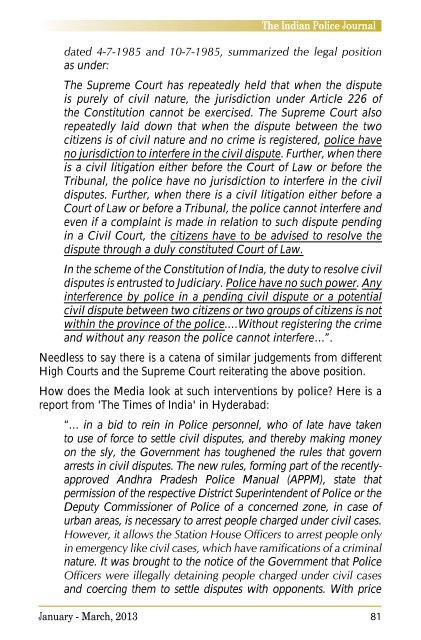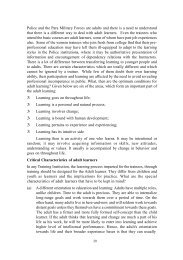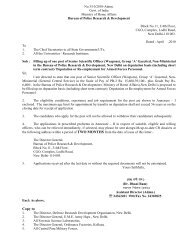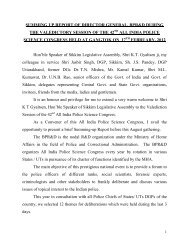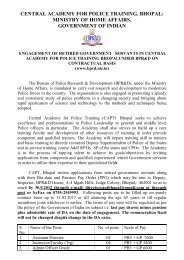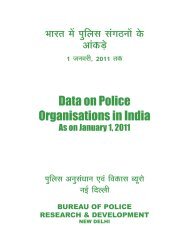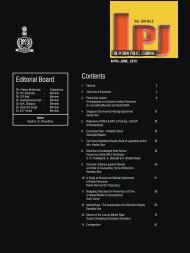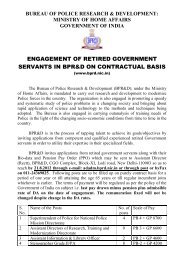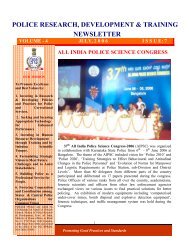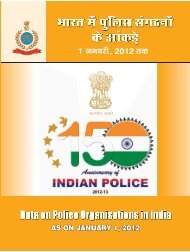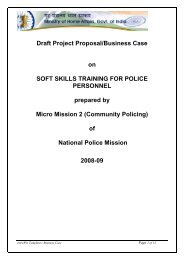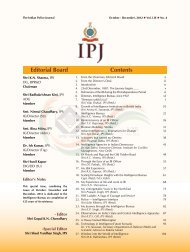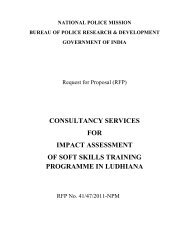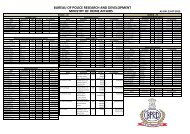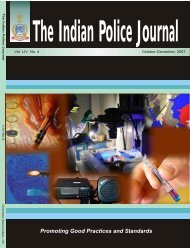by Police - Bureau of Police Research and Development
by Police - Bureau of Police Research and Development
by Police - Bureau of Police Research and Development
You also want an ePaper? Increase the reach of your titles
YUMPU automatically turns print PDFs into web optimized ePapers that Google loves.
The Indian <strong>Police</strong> Journal as under:The Supreme Court has repeatedly held that when the disputeis purely <strong>of</strong> civil nature, the jurisdiction under Article 226 <strong>of</strong>the Constitution cannot be exercised. The Supreme Court alsorepeatedly laid down that when the dispute between the twocitizens is <strong>of</strong> civil nature <strong>and</strong> no crime is registered, police haveno jurisdiction to interfere in the civil dispute. Further, when thereis a civil litigation either before the Court <strong>of</strong> Law or before theTribunal, the police have no jurisdiction to interfere in the civildisputes. Further, when there is a civil litigation either before aCourt <strong>of</strong> Law or before a Tribunal, the police cannot interfere <strong>and</strong>even if a complaint is made in relation to such dispute pendingin a Civil Court, the citizens have to be advised to resolve thedispute through a duly constituted Court <strong>of</strong> Law.In the scheme <strong>of</strong> the Constitution <strong>of</strong> India, the duty to resolve civildisputes is entrusted to Judiciary. <strong>Police</strong> have no such power. Anyinterference <strong>by</strong> police in a pending civil dispute or a potentialcivil dispute between two citizens or two groups <strong>of</strong> citizens is notwithin the province <strong>of</strong> the police.…Without registering the crime<strong>and</strong> without any reason the police cannot interfere…”.Needless to say there is a catena <strong>of</strong> similar judgements from differentHigh Courts <strong>and</strong> the Supreme Court reiterating the above position.How does the Media look at such interventions <strong>by</strong> police? Here is areport from 'The Times <strong>of</strong> India' in Hyderabad:“… in a bid to rein in <strong>Police</strong> personnel, who <strong>of</strong> late have takento use <strong>of</strong> force to settle civil disputes, <strong>and</strong> there<strong>by</strong> making moneyon the sly, the Government has toughened the rules that governarrests in civil disputes. The new rules, forming part <strong>of</strong> the recentlyapprovedAndhra Pradesh <strong>Police</strong> Manual (APPM), state thatpermission <strong>of</strong> the respective District Superintendent <strong>of</strong> <strong>Police</strong> or theDeputy Commissioner <strong>of</strong> <strong>Police</strong> <strong>of</strong> a concerned zone, in case <strong>of</strong>urban areas, is necessary to arrest people charged under civil cases.nature. It was brought to the notice <strong>of</strong> the Government that <strong>Police</strong><strong>and</strong> coercing them to settle disputes with opponents. With priceJanuary - March, 201381


